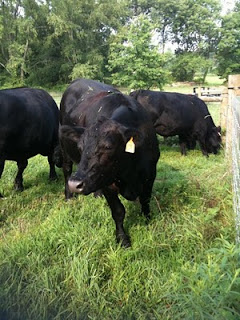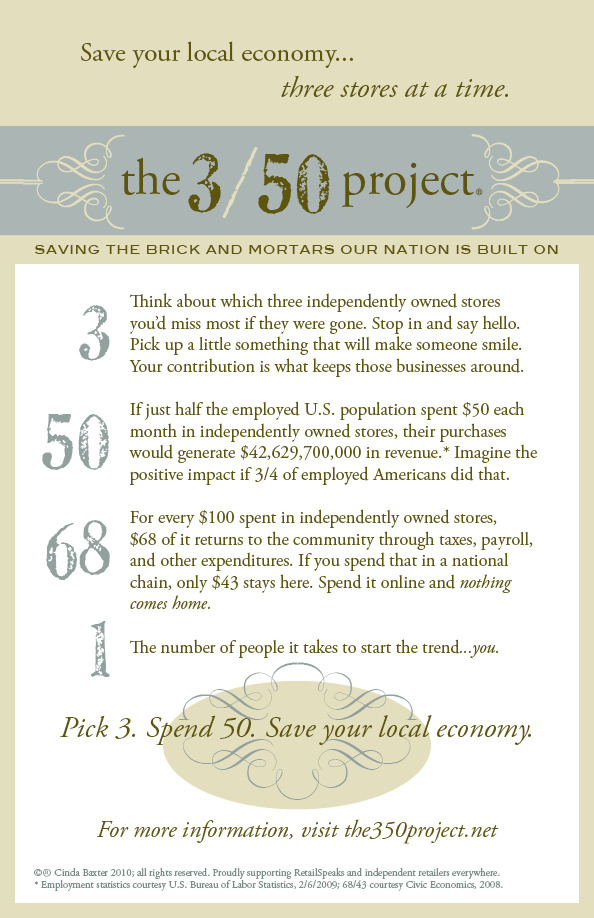I recently had the opportunity to participate in a social survey for green bloggers. One of the questions on the survey was what motivated me to "become green" or to provide a link to a blog post if I had written a post answering such a question.
After completing the survey, I thought more about my answer. Why am I green? Did I turn green? Was there ever a time I wasn't green? I am referring to eco-friendly, not motion sickness, incidentally. Do I want to be so self indulgent as to give you enough history why I've embraced green? I opted for indulgence and therefore I beg yours.
I grew up in the 1970s on a small organic vegetable farm in rural Ohio. We farmed 30 some acres with produce and raised our own chickens and pigs. My grandfather in the same town raised Black Angus cattle. We had a small roadside vegetable stand. I grew up with delicious fresh food, infrequent trips to the store, and a simple life. It wasn't a conscious decision or choice, but rather the only life I knew. If we rode our bikes somewhere, it was to our friends' houses to either play ball or swim in their ponds. We didn't generate garbage for a few reasons; we either burned it (eek!) or composted it, or drove it to the dump when we had too much. Farmers also have barns so they can save everything. We had a plethora of egg cartons, jars, bags, baskets. We just didn't generate much waste. Of course I dread the day that comes and those barns need to be cleaned out, but fortunately, that's not today... (however, I must keep it real).
After high school, I found myself in the city! The urban life was such a welcome surprise. I loved the freedom to walk places and explore the cultural vibe that went past ice cream socials at the Town Hall. I lived on campus at an urban university and loved that within 30 minutes I could walk all over the area, to plays, museums, shopping (albeit somewhat limited) and of course, college parties. I got involved in student activism, but it was more a social thing for me than a true lifestyle.
As a young married adult, our first home was in the city proper. I embraced curbside recycling and the frugal start in life side of me just was very careful with what I purchased and avoiding waste. I created more "found recipes" by refusing to throw out food in our pantry, but rather find a creative way to eat what we had before we bought more. I walked places or rode my bike to conserve gasoline, and therefore dollars. I was green but not for any other reason than keeping green in our bank account. I knew that I would want to be home when we had children so my goal was to save as much as possible.
When we had children, we moved to the suburbs. I stopped working for an income at that point, so my "job" became saving money. I nursed both our children instead of paying for formula and I used cloth diapers. My choices were honestly more about finances than environment, but I had a weird disconnect about telling folks I was cheap so I explained my choices as "environmentalism", again, keeping it honest and real.
I didn't fully embrace green living until tragedy hit our circle of friends and family. Within a 6 month period, about eight years ago, six close friends or family members were diagnosed with some sort of cancer. Today only one of those six is alive. Their diagnosis' rattled me so much. I consider myself a problem solver, but there seemed to be no solution to this horrifying disease. All I could do was consider what I grew up with and what I knew. Cancer is an abnormal growth of cells. What causes cells to grow abnormally or mutate?
Well, for starters, much of our food has been injected with... Growth Hormones. And I wondered about all the chemicals we douse our natural world with... our soil, our homes, our bodies... surely there may be something there.
I do not consider myself an expert by any stretch of the imagination. What began as a mission of frugality has evolved into a way to protect the health of my family. I don't know what causes cancer, but I don't believe artificial hormones, chemicals or additives can be healthy for us. I don't think that sterilizing our environment and dipping our food in bleach is going to help our bodies stay healthy.
I don't know that I "became green". I think I always was green. What changed over the years was why. And truthfully, green IS my favorite color.
We're not getting any younger... the time is now. Why are YOU green?
from Kermit the Frog:
"I'm green, and it'll do fine, and it's beautiful, and I think it's what I want to be"
 Last fall, I became familiar with microlending from a post by my blog-sistah, Consciously Frugal.
Last fall, I became familiar with microlending from a post by my blog-sistah, Consciously Frugal.  This post has been picked up for syndication over on Your Olive Branch.org, a wonderful non profit forum to promote sustainable living and peace.
This post has been picked up for syndication over on Your Olive Branch.org, a wonderful non profit forum to promote sustainable living and peace.









